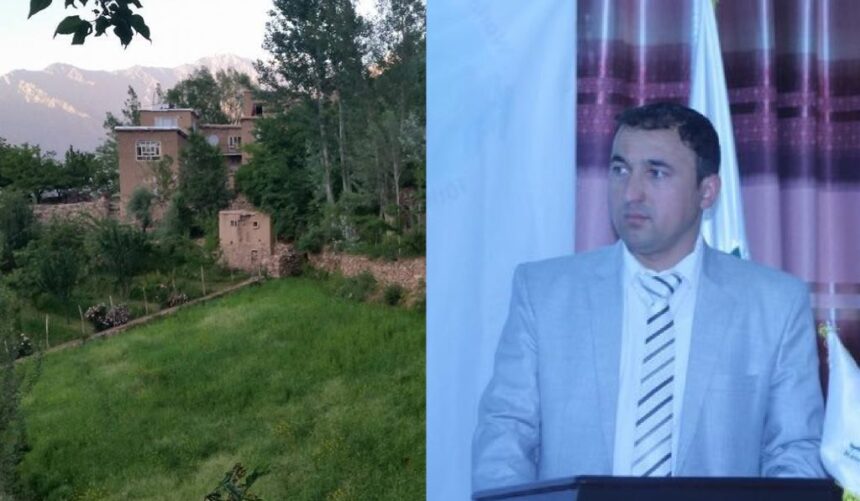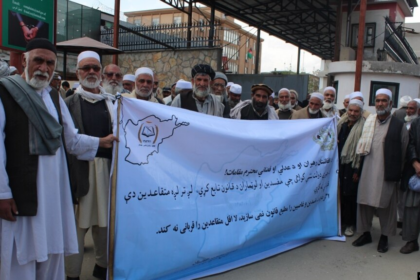RASC News Agency: In a striking illustration of the Taliban’s expanding campaign of repressive tactics, Farooq Aleem a prominent Afghanistani journalist and outspoken media critic of the Taliban now living in exile has reported that members of his immediate family were forcibly expelled from their home in Panjshir province by Taliban forces. The reported incident forms part of a growing pattern of retaliatory actions targeting the relatives of political dissidents and critics abroad. According to Aleem, his brother Ahmad Waez, along with his wife and four young children, was forcibly removed from their private residence in the village of Tankho, situated in the Darah district of Panjshir. In a post published on the social platform X (formerly Twitter), Aleem stated that Taliban personnel issued a chilling threat during the eviction: “Your brother publicly opposes the Emirate in the media. Since we cannot reach him, you will suffer the consequences.”
Deprived of legal process or notice, the family was rendered effectively homeless and forced to take temporary shelter in the home of a neighbor an act of desperation while they hurriedly gathered belongings and sought to flee the region. The incident, Aleem noted, was not an isolated act of intimidation but part of a calculated effort to instill fear, dismantle familial structures, and economically disable those who dare to oppose the regime. Further compounding the severity of the situation, Aleem revealed that a relative responsible for irrigating the family’s agricultural land was also subjected to threats by Taliban operatives, who warned him to cease all work on the fields. By halting irrigation, the group appears intent on rendering the land barren, a tactic that Aleem described as an “engineered form of punishment designed to inflict long-term harm and demonstrate the cost of dissent.”
In a direct appeal to the Taliban’s reclusive leader, Mullah Hibatullah Akhundzada, Aleem posed a stark rhetorical question: “Under what law do you punish a one-month-old infant and a three-year-old child children who have never even seen me for my journalism abroad?” The question underscores the Taliban’s increasing reliance on collective punishment, a practice widely condemned by international legal standards as both immoral and unlawful. This incident comes amid mounting evidence of similar operations across Panjshir, a historically resistant province that has endured sustained Taliban military and administrative pressure since the group’s return to power in 2021. Multiple residents, speaking anonymously for fear of retribution, have informed local sources that the Taliban have issued expulsion orders to several families in recent weeks, often citing vague “security” justifications for reclaiming residential areas intended for future military outposts.
However, human rights observers and local sources contend that these removals are far from incidental. Rather, they point to a deliberate and systematic campaign aimed at altering the ethnic and demographic composition of Panjshir one of Afghanistan’s few remaining strongholds of Tajik cultural and political identity. “What we are witnessing,” one source noted, “is a slow, methodical attempt to erase resistance not just militarily, but demographically.” By combining displacement with economic strangulation and psychological pressure, the Taliban are deploying a strategy not only to weaken political opponents but to suppress entire communities suspected of disloyalty. Such tactics signal a dangerous escalation in the regime’s authoritarian approach to governance one that increasingly targets civilians, families, and ethnic minorities through extra-legal and punitive measures.
This latest episode further challenges the narrative of moderation the Taliban have attempted to project to international audiences. Despite their claims of inclusivity and reform, the group continues to govern through coercion, exclusion, and fear employing tactics that betray a fundamental intolerance toward dissent, pluralism, and the rule of law. As calls grow louder for global accountability and scrutiny, the international community must reckon with the Taliban’s continued use of forced evictions, family intimidation, and demographic manipulation as tools of control. If left unchallenged, these strategies will not only deepen the humanitarian crisis but risk institutionalizing a form of governance rooted in impunity and repression.






